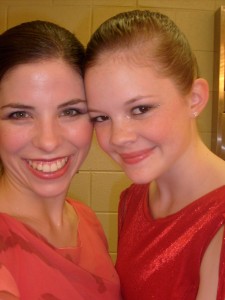 Once upon a time, there was a girl who believed that the best way to have a happy life was to expect for everything to go horribly awry whenever that something got the chance. Every test she took, she expected to be marked as an F, though she cried if it received anything under an A-. Every friend she made, she expected to disappoint her. Every achievement she earned, she expected to be forgotten. Every boy she dated… wait, that never happened. Every boy she wanted to date, she imagine that he saw her as a fat blob.
Once upon a time, there was a girl who believed that the best way to have a happy life was to expect for everything to go horribly awry whenever that something got the chance. Every test she took, she expected to be marked as an F, though she cried if it received anything under an A-. Every friend she made, she expected to disappoint her. Every achievement she earned, she expected to be forgotten. Every boy she dated… wait, that never happened. Every boy she wanted to date, she imagine that he saw her as a fat blob.
Then one day, that boy she expected to date wanted to date her.
Then things got worse. Every word he spoke was a comparison, and she failed. Every place he went was a memory of someone else. Every plan they made had been done before. Every feeling she felt, he didn’t feel.
Then things got worse in a different way. She pined
and pined some more
and pined a pathetic amount of pine-age.
Then, things got better. She decided to finally play the part of Abraham in the story for which he’s most famous. He had to kill the thing that had become his life, but she did things a little differently. She decided to, in effect, run away (thus ending her current life). She applied to a very exclusive program–a 2 year commitment during which time participants couldn’t date or wear fashionable clothes or attend the church of their choice. Well, perhaps it was assumed that participants would want to attend the required church, but I think that was hardly the case.
Then, things got complicated. She failed a class. She didn’t have experience. She wasn’t Baptist. She was too thin, which she found hysterical. She had a bipolar grandfather. She couldn’t control every aspect of her surroundings.
Then… she saw the ram.
Then, she smiled.
In high school such phenomena were considered almost sacred. Zach used to sit in front of her–turned around in his desk–and stare/joke/humiliate her into grinning. At dance, she was always told to relax her forehead and stop scowling. At home, her parents told her that boys would date her if she would just stop scaring them.
Here at the cross-roads of pessimist and not-quite-so-pessimistic-ist, I find that this girl is me.
It may seem like the strangest thing. I used to believe that always-smiling people were completely fake and must have an underlying mental or emotional condition that kept them from facing reality. If people faced reality, they would smile as seldom as I did.
I am not Joel Osteen. I do not have a smile plastered to my face. My natural face falls into a expressionless, straight mouthed emoticon, but… Zach no longer has to tell inappropriate jokes to turn up the sides of my mouth. In fact, I haven’t seen Zach in over 6 years, and I can still smile.
I would call myself a “recovering pessimist” because I am hardly an optimist. Realism is a seldom praised worldview, but I would claim it over romanticism any day. See, realism does not expect the worst; it expects what would or could happen in my world.
In my world, marriage works. My husband has hurt me, and I have hurt him, BUT neither of us desires to hurt the other person. Daniel loves me. Even when he asks me the same question about finances or my choice of clothes for the umpteenth time, he loves me. He likes me. He wants the best for me. He doesn’t cheat. He doesn’t abuse me. He seeks God. I am not naive. I’m honest. In my world, it would be completely against his character for him to negate those truths. It’d be like my deciding to love cats or roaches or driving slowly. Things like that just could not happen. It’s not realistic.
In my world, God is. He’s proven His presence. I have been hurt. I have hurt myself by living life as an open wound, but even in the hurt and the decay of my life, God is. He’s been my only friend, my Daddy, my confidant, my sanity, my healer, my assurance, my guidance counselor, my agent, my banker, and my attorney. Even in the times I let the consequences of sin–mine and others–hurt me, He protected me from becoming the druggy or whore or invalid I could have been.
In my world, life is not rose-colored. People die. Things are stolen. Children are hurt in unspeakable ways. Tests are failed. Speeding tickets are issued. Alarm clocks break. PMS sucks. I am alive. Daniel is beside me. God is.
Filed under: Meditations | Tagged: Relationships, Religion, World View | Leave a comment »




